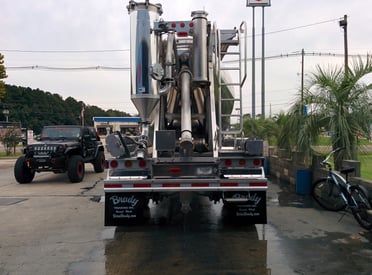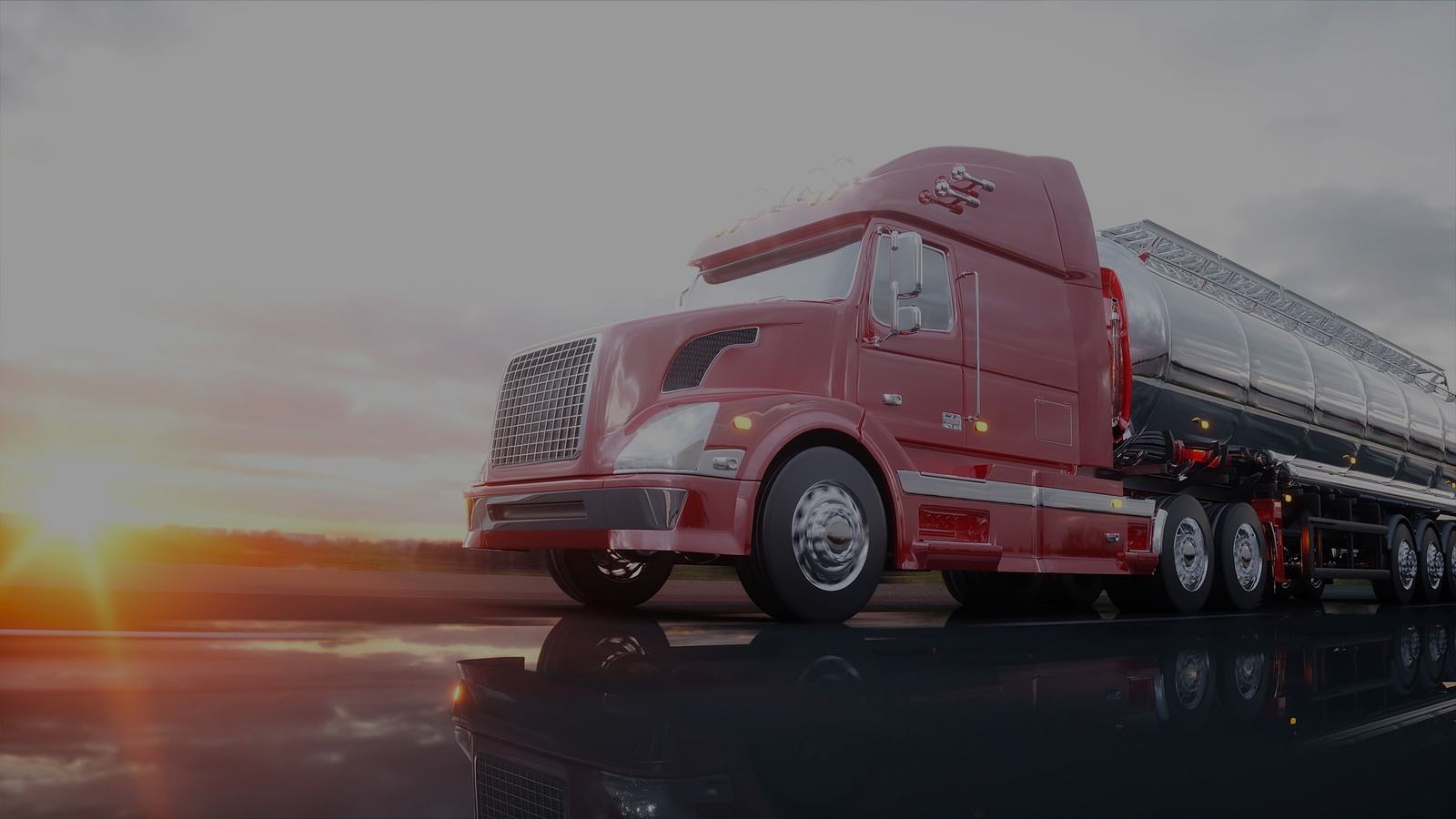“Dry bulk freight” encompasses a wide range of products from sand and clay to plastics and hazardous resins. As varied as these products can be, however, the processes involved with transporting them have similar characteristics. So, when you call your freight broker or carrier to book a dry bulk load, you can expect a relatively common set of questions. We’ll look at those questions in this article and help you form answers so your freight agent can match your product with the appropriate bulk transport equipment.
Questions your freight agent will ask to determine bulk transport equipment
- What are you shipping? An obvious question but a very important one. The type of product you are shipping will dictate equipment need to a large extent. Some types of pneumatic trailers, for instance, are incompatible with certain materials. The type of product will also dictate whether vacuums (typically used for plastics) or blowers (used for sand, clay and other powders) will be used.
 What is the density of the product? Trailers come in various sizes, 800 cube to 2,200 cube. Knowing what the density is critical as the carrier must stay within the Department of Transportation’s 80,000-lb. limit on gross vehicle weight
What is the density of the product? Trailers come in various sizes, 800 cube to 2,200 cube. Knowing what the density is critical as the carrier must stay within the Department of Transportation’s 80,000-lb. limit on gross vehicle weight - What is the value of your shipment? This question is necessary to ensure adequate insurance coverage.
- Do you have a Safety Data Sheet (SDS) for your product? Many dry bulk products have unique characteristics and require special handling. It’s important that your freight agent understands what they are off the bat, before the equipment and driver are selected.
- Are there incompatible prior products? Some shippers – especially those shipping food-grade products – will have a list of materials that must not have shipped in the same trailer prior to the current load. If your product has such a list, be sure to let your broker or carrier know.
Download our eBook: Dry Bulk Freight 101
- Do you have approved/certified wash locations? Some shippers – again, especially food shippers – will only allow the trailer to be washed at specific approved or certified locations prior to loading their products. For some materials, this tank wash must occur within 24 - 72 hours prior to loading. If you have any requirements related to washouts, it is important to tell your freight agent.
- If the product is plastic pellets, what color? Contamination is always a concern for all dry bulk loads, but especially plastic pellets. For example, if a single white pellet slips into a load of black pellets, a white slash can appear across hundreds of units made with the black pellets. Because of this, many carriers will dedicate some of their trailers to individual pellet colors.
- Is there a scale available at the loading site? An extra fee may be charged by the carrier if the driver must weigh off-site.
- From what will you load the product? And into what kind of receptacle will it be unloaded? These are important questions that help dictate what type of trailer will be used in addition to other bulk transport equipment. For example, at the unload site, blowing material into a silo or gaylord is a much different process than using a bottom drop and thus requires different equipment. Your broker or carrier will also need to know what fittings and adapters will be needed – if any – for loading and unloading.
- How close can the truck get for loading and unloading? The answer to this question will help the carrier ensure that the appropriate length of hose – if applicable – is on hand for vacuuming and/or blowing material.
- Can you provide the information of key contacts at the loading and unloading sites? This information helps your driver should he or she need it the day of the project. It also allows the carrier to contact the facility ahead of time to confirm key details and get a better sense of conditions at the site in order to avoid unpleasant surprises.
Lean on Bulk Connection to guide you through the bulk shipping process
If you have questions about bulk shipping, securing the right bulk transport equipment, or anything else related to your product’s transportation needs, Bulk Connection is happy to talk to you. We pride ourselves on a personal brand of service that you simply won’t find anywhere else. And, as our agents average almost 20 years in the industry, it’s also an expert brand of service that you’re unlikely to find elsewhere.
So, if you’re looking for a bit of guidance and expertise to go along with robust shipping capabilities, contact Bulk Connection today.




